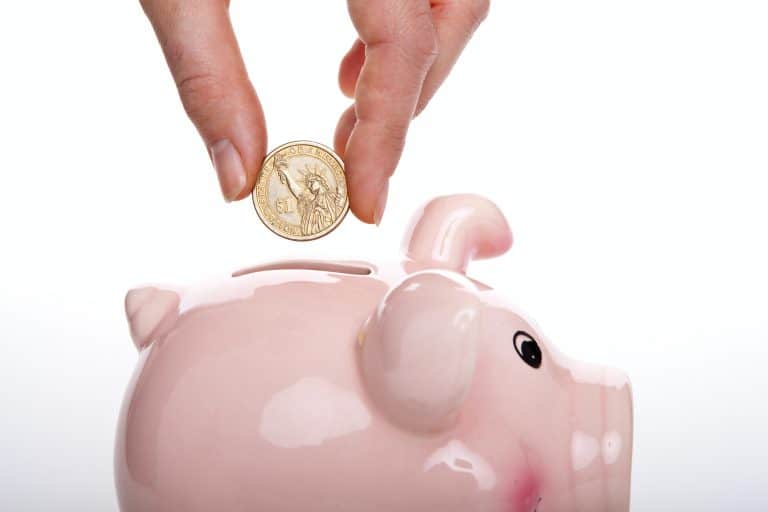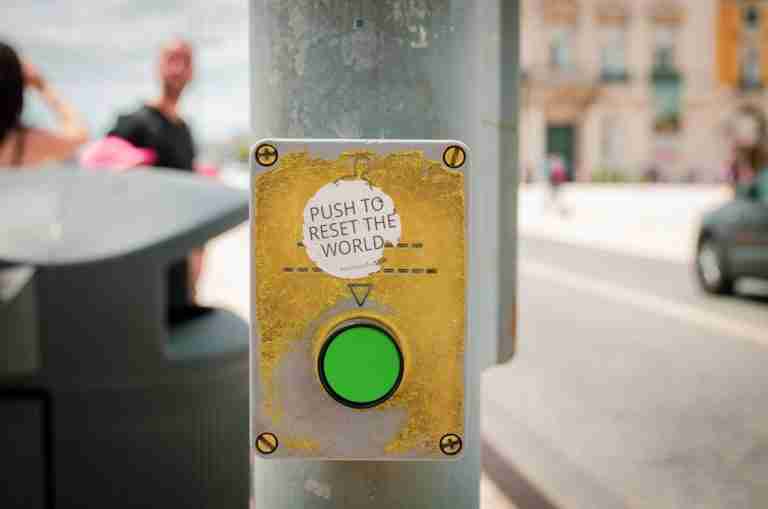How to manage money well (money management tips for beginners)
Learning how to manage money is the beginning of all financial freedom. Not knowing how to manage money well will often if not inevitably lead to money worries and then money troubles.
There are a few things to think about when it comes to how to manage your money. You’ll need to figure out what your expenses are and where you can cut back. Next, you should make a budget and stick to it as closely as possible. Finally, it’s important to save for the future so you have a cushion in case of tough times. Following these tips should help you better manage your money and improve your overall financial situation.
| Step | Description |
|---|---|
| 1. Create a Budget | Track your income and expenses to understand where your money is going. |
| 2. Build an Emergency Fund | Save for unexpected expenses. Aim for 3-6 months’ worth of living expenses. |
| 3. Pay Off High-Interest Debt | Prioritize paying off high-interest debts like credit cards to save money over time. |
| 4. Start Saving | Set aside a portion of your income for short-term goals like vacations and long-term goals like buying a house. |
| 5. Begin Investing | Start investing in low-cost index funds or retirement accounts to grow your wealth over time. |
| 6. Get Insured | Protect yourself from financial disasters with appropriate insurance (health, car, home, life). |
| 7. Educate Yourself | Read books, take courses, or follow finance blogs to learn more about money management. |
| 8. Monitor Your Credit | Regularly check your credit report to ensure accuracy and protect against identity theft. |
| 9. Plan for Retirement | Start contributing to a retirement account as early as possible to take advantage of compound interest. |
| 10. Seek Professional Advice | Consider consulting with a financial planner or coach for personalized advice. |
Remember, managing money well is a journey, not a destination. It’s okay to start small and gradually build up your financial skills over time.
Read on for more personal money management tips.

The difficulty many of us have is that we have not been effectively shown how to manage money. We might have seen how our parents, friend’s or celebrities do it, but that may or may not have been a good example.
Once we have left home, we are at the mercy of advertising and social media to see how we think or how we are told to manage our money to make us happy, i.e., spend as much of it as possible.
It’s your money
This is what many of us seem to forget. You earnt it; it’s your money. In fact, what happens is that most of our money quickly becomes someone else’s money. We immediately start throwing around our money like confetti to the cable company, nights out, clothes and stuff.
Before too long we are gasping for air at the end of the month desperate for payday.
If only you could keep more of your money, the more chance, you would have of growing real
wealth and financial freedom.
Financial literacy and managing money
If you have children, what sort of skills do you want to pass on to them? To be kind, to
eat with their mouth closed and or financial literacy?
Knowing how to manage money will be a key life skill for you and a massive head start for your children to learn how to do this right in the house where they grow up.
There are many skills to learn for a fulfilled life, but how to manage money has got to be up there. Having the skills and knowledge to manage money well will set you and your children up for a bright future.
Of course, the opposite of this, i.e. no knowledge how to manage money well will lead to many financial difficulties and pain throughout life as you move from one financial crisis to another. The classic case will be living paycheck to paycheck. One payday away from disaster. That doesn’t sound like a good life.
How to manage money wisely
Right, let’s start at the beginning. How much money do you have coming in? Do you know? You’d be surprised by how many people don’t know how much they get paid. Understanding your payslip, what’s the overall figure, being taken off, and what you have left.
How much money do you have? How much money do you owe? And what’s the difference. Ideally, you have a positive figure at the end of it.
Awareness of what’s coming in and going out and what’s left overall is the key to understanding what is going on with your money. There’s nothing like sunlight to disinfect your finances and tell you what is going on rather than what you think is happening.
There may be pleasant or unpleasant money movements happening, but at least you can now address them. That magazine subscription you no longer need, all those takeaways eating away at your finances or that fun holiday that was worth every penny.
Nowadays you can get apps, or some bank accounts can categorize and track your spending, so you know what’s going on good, bad or ugly spending. I use Moneydashboard* (Affiliate link. Other Apps are available) which helps give you a weekly update on spending and where it’s all going.
Budgeting and planning
How you budget and plan is more of an art than a science but can depend on what you are trying to achieve.
The main point of a budget is to give each of your pounds/dollars/Yen a job to do. If they don’t have a job to do, they will wander off and get lost if you like good coffee, you set aside specific money for that use.
A budget is to help you spend your money in the way you want to and not just to let money slip through your fingers on undefined things.
Once you have your data where your money is going, you can either use that as a budget or begin to mould your spending more into how you want to send your money, i.e. start cutting down or out things you don’t need or want.
Moneydashboard (Affiliate link) has a budget format, but you can use a spreadsheet or a piece of paper to figure out needs, wants, debt repayment and savings.
The 50/30/20 rule of thumb
One classic budget is the 50/30/20. Spend 50% of your income on needs, 30% on wants (but you don’t have to spend this much) and 20% on saving and/or paying off debt.
A slightly different version of this would be to spend only 50%, invest 30% and save 20% until you have 3-6 months cash for an emergency fund and then invest even more. This would be a potential wealth building budget as you would be investing and saving much more.
These budgets may or may not work for you. This depends on what you are trying to achieve. If you are trying to save more, then the savings component should be higher. If you are trying to make a major change in your finances, then the savings component will need to be much higher as you trim off the wants.
Those people in the FIRE (financial independence Retire Early) community look at savings rates of 50% plus. Obviously the more you earn, the easier it is to save more. But everyone can save a little more with a more focused approach to managing money considering what they really want.
Here’s a great article on the power of saving rates on your early retirement. The shocking simple math’s of early retirement.
Financial planning steps
Even a basic financial plan could save you time, money and energy to achieve your goals. You know that if you go on a long journey and you already know the route it will be much faster than just guessing your way there.
What do you want to achieve in life? When would you like to do it? Who do you want to achieve it with? Want kids, how many and when? Want to travel, to where, when and in what style?
Think of all the things you would like to do in the next month, year, five years, ten years and your lifetime. Do any of these have financial implications, i.e. they will need money to achieve them.
Get a blank sheet of A4 paper, break it up into time chunks like above or as you like, and set out what you want to do in those time slots. Then guestimate what it might cost. The more accurate, the better, look online for what these things night costs. But don’t get hung up on the accuracy just the ballpark figure.
You might need to focus the list on 3-5 of the most important things you will regret never doing.
Next, what are the three next steps you could take to achieve them? These can even be tiny steps, i.e. look inline, get a book or set up a bank account for whatever it is. Just start taking steps towards them one action or £/$/€ at a time.
The information of where you want to go can now be combined with your current reality. What is your current net worth positive or negative? This might mean you have a lot of work to do to get to where you want to, or it could be that you’re not that far off a few goals already.
Now you have the beginnings of a plan. You know where you are now and where you want to go. It might change over time, and at least a yearly review will help update, change, or eliminate things you no longer wish to do. The difference is that now you have a rough map to get there.
Debt
Debt is going to be a severe drag on how you achieve your goals and become financially free.
You will often hear the phrase the good, the bad and the ugly debt.
Good debt is classified as purchasing some sort of asset that should go up on value. A house, or maybe further education as it is increasing your ability to earn.
Bad debt – things you have borrowed money on that immediately lose value. As soon as you drive a car off the sales lot, it is losing value, but you are still paying off what you paid for it. When you come to sell it, you will get much less than you paid.
Ugly debt is associated with high-interest credit, store cards, car lease payments. Things that you have bought that you will know spend a lot of time and money paying off that added little value to your life. Things that were vanity buys. A car, flash tv or clothes far above what you needed. These are going to cost you heavily, what it will finally cost you in money but more importantly the time it has used up to pay them off.
Some say that all debt is bad as it keeps you the slave of someone else, i.e. you must keep working to pay someone else. So always thinking carefully before taking on more or new debt will help you stay out of this problem.
If you are going into debt, then always think about how much it will cost to pay it off and what your plan will be to pay off over what time.
If you are having debt problems, Stepchange and the Money advice service can
provide free advice and guidance.
How to prevent financial crisis: Protect yourself.
At some point, the wheels are going to come off. It’s when things go wrong and not if. To prevent mistakes, lousy fortune or serious incidents wiping you and your family’s financial future out, you need to protect yourself.
Set up an emergency fund
This can take many forms, but the basic one is an emergency fund. Enough cash set aside to last you 3-6 months or more if you feel more vulnerable.
An emergency fund of 3-6 months expenses or larger should help you ride out most financial shocks: a broken-down car, boiler gone bust or a gap between employment.
The emergency fund should be kept in an easy-access account and in cash as you may need to access it asap in an emergency. Figure out what it costs you to live for a month and times it by 3 or 6 or more to get to your emergency fund.
If you don’t have an emergency fund, there is no time to set one up like the present. Start by setting up a standing order into a separate account that can start building it up asap.
How much should you have in an emergency fund?
You will need to assess this for your own circumstances and risk appetite. As suggested above, 3-6 months is often the quoted amount. But this may not be enough if you think your job, sector or personal circumstances are riskier.
Finding a new income might be tricky if you and your partner work in the same sector or employer with large, expensive debts or underlying health conditions.
If your reading this is March 2020, then you are experiencing an almost complete shutdown of jobs and economic activity for most people. All a sudden lots of peoples jobs have stopped dead, and the economy appears to be grinding to a halt for how long who knows.
A safety net of 3-6 months or more expenses will make any challenge like this much more bearable.
Life, critical illness and income protection insurance.
All or some of these types of insurance will also protect you and your family if things start to go seriously wrong.
Life insurance is obviously more for those that are left behind if you or a loved one dies. It’s not a pleasant subject to discuss, but leaving your family to spiral into poverty after you have gone is not either. Ensuring those left behind can carry on as they were or even better will be an important legacy to leave.
How much life insurance you want to get depends on your circumstances, what you can afford, and what you want to give to those left behind. Things to consider will be how will those left behind manage without you? Are there any significant debts that you would like or need to get paid off like a mortgage. Do you need to replace your lost salary for a set number of years, i.e. until your children leave home?
Something to check does your current employer offer a death-in-service life cover. This might pay out a multiple of your salary. You can then see if this is enough or if you need to supplement this with your personal life insurance.
Critical illness is for when you suffer from one or more listed critical illnesses. Common on the list are cancers and other life-changing illnesses. Payouts are usually lump sums helping you deal with any loss of income and if adaptations are needed to your house for the after-effects of the illness or injury.
Not having to worry about money while you are critically ill will give you great peace of mind. Helping you to concentrate on getter better.
Income protection kicks in when you can’t work anymore for a number of health-related injury or illnesses. These often payout a percentage of your income up to a designated amount of time. Again, worth checking if your employer offers anything like this when it kicks in, how much and for how long.
All these insurances will cost depending on your current age, current and past health, family health history and your lifestyle, including the type of work you do, i.e. is it already dangerous.
These types of insurances might be expensive but will give you massive peace of mind when they come to the rescue. Until then they may be your best waste of money because you hope they are a waste of money and don’t need to payout.
Retirement planning
Are you ever planning on not working or at least not working for money in the future? Or would you like to work forever, i.e. die in your work clothes?
What do you want your retirement to look like, when, and how it happens? What does a good retirement look like, and what might it cost? Are there things you have always wanted to do? Will you want to support others in your family at this time?
And for a bit of stick, what does a lousy retirement look like? Being poor in your old age may well not look very pretty or comfortable. Do you want to be dependent on state aid?
Answering these types of questions will help you get a picture of what a good retirement looks like. It will also help identify some financial costs, i.e. what it costs to go on one or more cruises a year or to be mortgage-free when you retire.
Saving and investing
The main differences here is the risk and reward involved and the return of and on your money.
Saving money in a bank account is generally safe, depending on the bank. However, it has usually also had a minimal reward. The reward likely being interest earned on the cash. It’s been some time since interest rates on cash were above low single figures. This means that you are getting a meagre rate of return on your money, but you should get the return of your money, i.e. if you put in £100 you should get £100 back when you come to withdraw but possibly not much else.
When it comes to investing, you are expecting a higher rate of return on your money and your money back. But here is where higher risk is involved, i.e. you might get less money than you put in back depending on when you want to access your money. For example, if you wanted to access your money right during a financial crisis, you might find that the value of your investments have gone down and this is a bad time to sell.
The types of investments you might include – shares, property, businesses, websites etc. In general, things that earn you an income are likely to increase in value over the longer term.
Property and mortgages
Buy the biggest house you can – or read get the biggest debt you can and spend the rest of your life paying it off – not sure it sounds that much fun.
Buying a house is likely to be your biggest purchase, so don’t let it be your biggest mistake when it comes to money. Make sure you can afford any mortgage with plenty of give in your finances, i.e. if your income reduced you could still afford the mortgage for several months and not immediately into crisis.
Getting a smaller house that you “could” is going to be a severe psychological barrier to overcome but a key to financial success. I’m not sure who is impressed by your massive mortgage – is it helping you sleep at night?
You also need to keep some cash aside for fittings and furniture, and in case anything goes wrong, i.e. the boiler or house improvements.
When you get a mortgage offer, consider your future self still paying off the house well into your 60’s, 70’s or older!! Do you still want to be working to pay off the debt at that age?
Tax efficiency
There are legal ways in most countries to avoid overpaying tax. In the UK these are predominantly through ISA’s (individual Savings Accounts) and Pensions or SIPPS (Self Investment Personal Pension)
ISA’s allow you to put cash into either a cash account or a stock and share version. Once inside any earnings are tax-free. So, you won’t pay any tax on interest, dividends or growth of the value of the funds while inside the ISA.
The advantage of an ISA is that you can put in (up to a certain amount per tax year) and take out money anytime you like. The disadvantage is that you can take out your money anytime you like so you might keep raiding it for needs and wants rather than using it to build your wealth.
A personal or work pension is more restrictive as once you put money in you cannot access it until 57 (although the age keeps getting older). However, you will get tax advantages as often the government gives you back a proportion of the tax you paid on the money when you earnt it. If its an employer pension you will get the money paid into your pension tax-free and
then likely a contribution from your employer to boost the amount, i.e. free money from your employer.
Fun money now
Making sure you have enough money for regular fun expenses like birthdays, Christmas, yearly holidays etc. will also help keep you straight and narrow. Otherwise, if these come as surprises every day, week month, it will lead to multiple mini-crisis every time they come around.
Eating out is likely to be part of your fun money. Eat different food adds a lot of colour to life so you can plan for this in your expenses. Or you can learn to cook the type of food you like to save even more on the costs.
Scams and ongoing financial literacy
If it sounds too good to be true it probably …… is.
The challenge is that when you are new to something you might not know what too good to be true loots like. Short cuts, massive profits, huge rates of return in a short period of time should all be warning signs that something may not be right.
When your motivated by greed or to get rich quick and believe that you can’t be fooled that’s when you are at your most vulnerable. The reason is that you will blinker yourself to see what you want to see and look for things that reinforce what you want to hear, i.e. confirmation bias.
Anything that sells skipping hard work and effort for a quick solution is skating on thin ice. If you think you can get rich quick without learning and experiencing hard work, then a lottery ticket is probably your best bet as it shouldn’t cost you too much money. Anything like schemes charging thousands for rapid progress to riches.
Read more, listen more and learn how to manage your money
The first time you hear about a concept like financial independence, it might be completely new to it. But just like any other learning you have done over time, it will become more and more familiar as you become more financially literate.
Books– they are good for reading, there are countless great financial books out there, reading at least once a year will massively boost your financial literacy. You can get them for free at your local library, second on eBay or Amazon or brand new everywhere. If you can’t be bothered to do that you could get the author to read it to you through Audible.
Podcasts – countless podcasts are out there talking about money in every single way. For men, for women, for families etc.
And of course, there is financial coaching. Where you can work with someone to help you think about and manage your money, plan out what you would like to achieve and then keep you accountable to those actions. A financial coach can help you save time, money and help prevent some of the more painful mistakes.
FAQ: How to manage money well
How to manage money well?
There’s no one answer to this question since everyone’s financial situation is different.
However, a few general tips include:
-Create a budget and stick to it.
-Save for emergencies.
-Invest in yourself by taking courses and learning about personal finance.
-Be mindful of your spending habits and try to avoid impulse buys.
-Think longterm and invest money wisely.
-Stay disciplined with your finances and don’t overspend.
Is there an easy way to manage money?
There is no set way to manage money, but everyone can do a few basic things to get started.
The most important thing is to create a budget and stick to it. Make sure you know how much money you have coming in and going out each month, and try to live within your means.
Another key to managing your finances is to start saving for retirement as early as possible. Even if you can only save a small amount each month, it will add up over time.
And lastly, be careful with your credit cards – only use them when you absolutely have to, and try to pay off the balance every month.
If you can follow these simple tips, you’ll be on the right track
How to manage a lot of money?
To manage a lot of money, you need to:
Create a budget to track your income and expenses.
Diversify your investments to spread risk.
Set up an emergency fund for unexpected expenses.
Continue to strengthen your financial literacy including working with a financial planner or coach.
Regularly review and adjust your financial plan.
Consider tax implications and strategies.
Donate to causes you care about and consider estate planning.
What is the best way to manage money?
The best way to manage money is to create a budget to track income and expenses, build an emergency fund for unexpected costs, pay off high-interest debts, start saving and investing for future goals, get appropriate insurance, regularly review your financial plan, and seek professional guidance as needed. It’s also important to continually educate yourself about personal finance.
What are the 3 basics when managing your money?
The three basics when managing your money are:
Budgeting: Track your income and expenses to understand where your money is going and to plan for future spending.
Saving: Set aside a portion of your income regularly for emergencies and future goals.
Investing: Make your money work for you by investing in things like stocks, bonds, or retirement accounts to grow your wealth over time.
How do you improve money management?
To improve money management:
Create a Budget: Track your income and expenses to understand your spending habits.
Set Financial Goals: Having clear goals can motivate you to save and invest.
Build an Emergency Fund: This provides a financial safety net for unexpected expenses.
Pay Off Debt: Prioritize paying off high-interest debts to save money in the long run.
Start Investing: Even small investments can grow significantly over time.
Educate Yourself: Read books, attend workshops, or take online courses about personal finance.
Use Financial Tools: Apps and software can help you track spending, saving, and investing.
Review Regularly: Regularly review and adjust your financial plan as needed.
Seek Professional Guidance: A financial planner or coach can provide personalized advice based on your situation.
Why is money management important?
Money management is important for several reasons:
Financial Security: Good money management practices can help you build a safety net for emergencies and ensure you have enough to cover daily living expenses.
Achieving Financial Goals: Whether it’s buying a house, starting a business, or retiring comfortably, effective money management is key to achieving these goals.
Reducing Stress: Financial worries can lead to stress and anxiety. Managing your money well can provide peace of mind.
Avoiding Debt: By living within your means and saving for future expenses, you can avoid unnecessary debt.
Building Wealth: Through saving and investing, good money management can help you grow your wealth over time.
Financial Independence: Effective money management can lead to financial independence, giving you the freedom to make choices that aren’t dictated by your financial situation.
What’s an easy way to manage money?
An easy way to manage money is to follow the 50/30/20 rule:
50% Needs: Allocate 50% of your income to essential expenses like rent, groceries, and bills.
30% Wants: Use 30% for discretionary spending on things like dining out, entertainment, and hobbies.
20% Savings and Debt Repayment: The remaining 20% goes towards savings, investments, and paying off debts.
This rule provides a simple framework for budgeting. Additionally, using a budgeting app can make tracking your income and expenses easier. Remember to review and adjust your budget as needed, and to set financial goals to motivate yourself.
Take Action on your life and finances now!
Are you in your 40s and feeling the financial squeeze? You’re not alone. This can be a challenging time financially, as you may be:
- Juggling mortgage payments 🏠
- Managing family expenses 👨👩👧👦
- Planning for retirement 🏖️
- Saving for your children’s college education 🎓
- Paying off lingering debts 💳
It’s time to stop the stress and start your journey to financial happiness. Financial coaching can provide the tools and guidance you need to navigate these challenges. With coaching, you can:
- Create a realistic and manageable budget 💼
- Develop a clear and achievable savings plan 🐖
- Learn effective strategies for debt repayment 🔄
- Understand and plan for future financial needs 📈
- Start saving and investing for financial independence 💰
- Gain peace of mind knowing you’re on the right track 😌
Don’t let financial worries cloud the prime of your life. Schedule a call with me today at Financially Happy Money Coaching, and let’s turn your financial stress into financial success!
Together, we can build a plan that aligns with your goals and sets you on a path to financial freedom. Let’s make your money work for you, not vice versa. 💪💰







